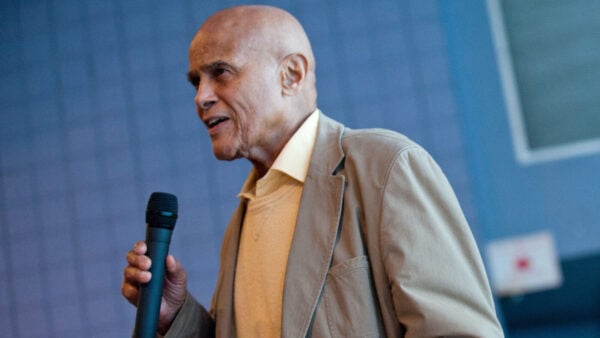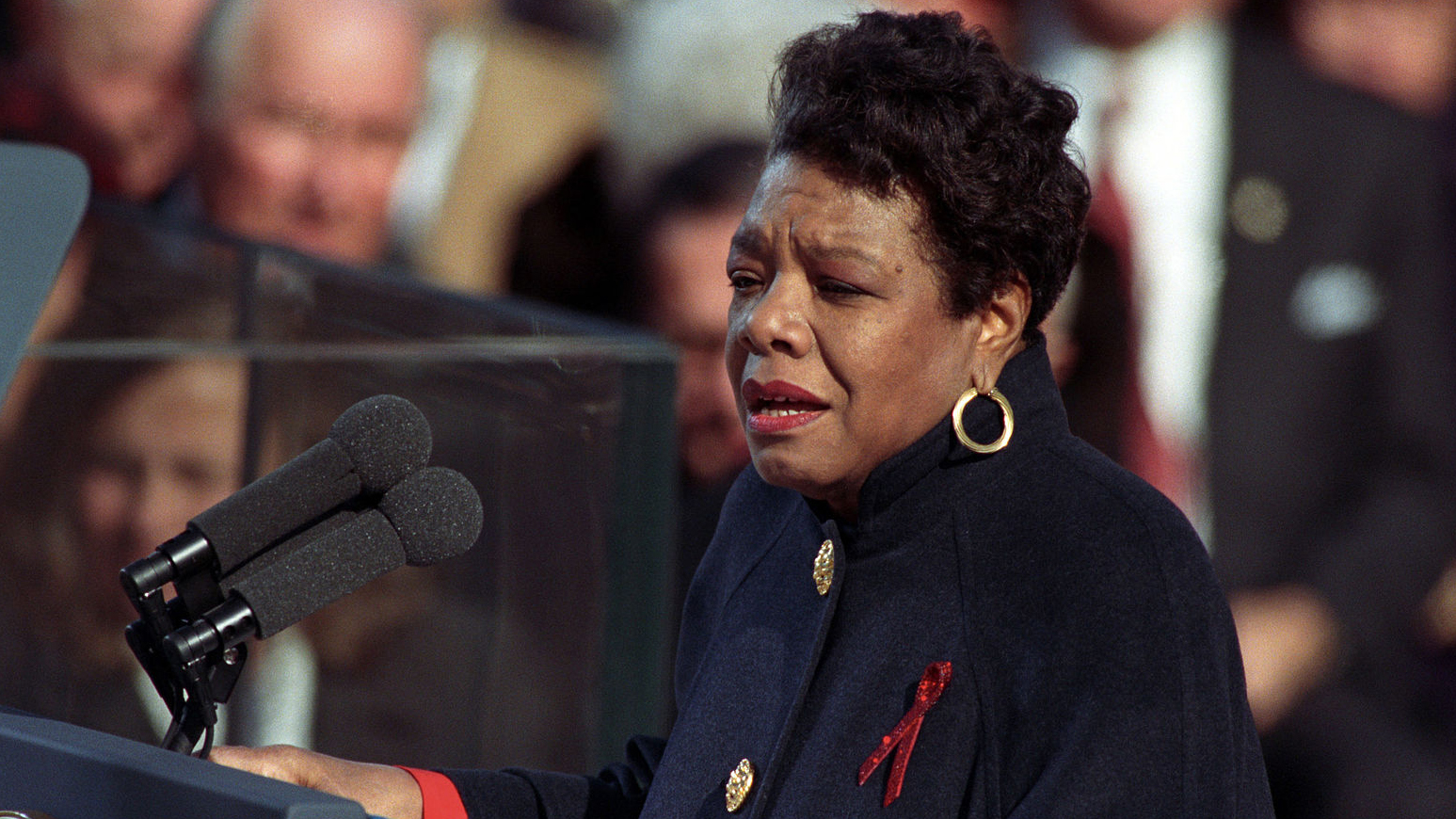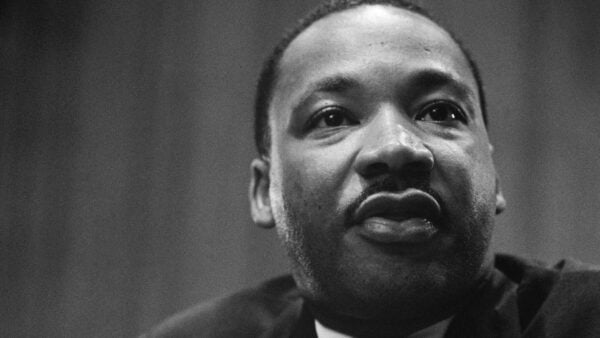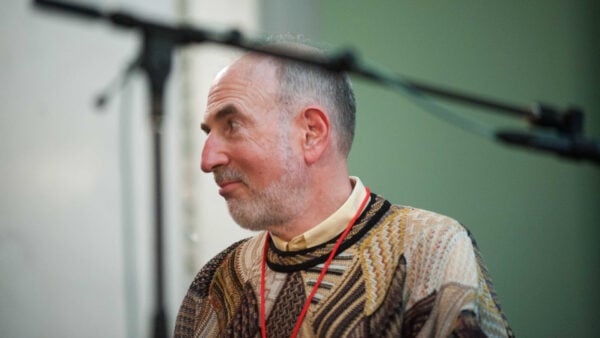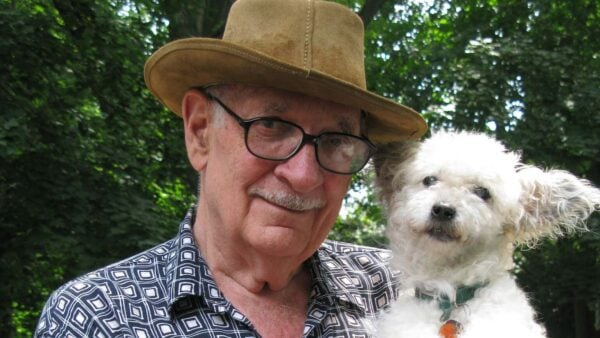
Dr. Martin Luther King, Jr. was interviewed by WFMT host Studs Terkel following his historic “I Have a Dream Speech.” During their conversation, recorded at the Chicago home of Mahalia Jackson on October 22, 1964, Terkel asked King, “When did this dream first come to you?” Hear their full conversation below alongside transcriptions of selected quotations below.
“To live as brothers”
“This has always been my dream as far back as I can remember even as a teenager growing up. Even though I lived in a Southern community where segregation and discrimination were part of our everyday lives, I always dreamed of a day when these conditions would not exist.”
“And I dreamed of a time that all nations would erase this ugly problem and then we would be able to live as brothers and that the Negro could walk the earth with dignity and self-respect. So this has been a dream for many, many years now.”
His father’s influence
King recalled the influence of his father on his dream, saying: “He has always made it clear that he could never adjust himself to segregation, and that influenced me from the very beginning. He is still a great influence. He has been active supporter of all that I attempt to do, and I’m sure that part of the dream has grown out of the dream that my father has always had.”
“The one thing I always remember and always will remember about my father is the fact that racial segregation was an evil system in his mind, and one that he was determined not to adjust to, and he did not allow his children to adjust to in the sense that he always taught us that even though we had to face the reality of the system, that there was a sense of ‘somebodiness’ that always kept us moving toward the sense of dignity and self-respect that any human being should have.”
“Segregation injures the soul or the mind of the segregated as well as the segregator. It gives the segregator a false sense of superiority, and it so often leaves the segregated with a false sense of inferiority. So it does scar the soul of both.”
The danger of hate
“Hate is a dangerous force… it injures the hater as well as the hated.”
“Many of the psychiatrists are saying to us now that many of the strange things that happen in the subconscious and many of the inner conflicts are rooted in hate. This is why many are saying love, or perish.”
Civil disobedience
King described the influence of Henry David Thoreau on his dream saying, “I came to see when I first read his essay on civil disobedience, which I read in my second year in Morehouse College, that non-cooperation with evil is as much a moral obligation as is cooperation with good. That has lived with me ever since. This is the most moving or the most important influence of Thoreau in my life.”
Gandhi’s love ethic
“Gandhi, by far, did more than any other human being to lift the love element of the New Testament of Jesus’ Sermon on the Mount to the powerful level of sociopolitical action. I often say I received a great deal of the inspiration for this movement from Gandhi because he provided the kind of operational technique that made the love ethic a reality in so many dimensions. I think Gandhi certainly stands as one of the great persons of history, and the whole non-violent movement that we see in the United States today is greatly influenced by Mahatma Gandhi, particularly the revolutionary work that he did in India.”
“On the whole, we had seen love merely in terms of individual relations. The love ethic usually was thought of as something that applied between individuals as they thought in context of their relationships with each other. But what Gandhi did was lift the love ethic to this great level of social transformation so that not only must an individual love an individual, but a whole racial group must love another racial group, and that somehow through this love process organized into mass action, we can bring about powerful social change.”
Laughing to survive
“You’ve got to have the ability to engage in creative laughter amid difficulties and tension. If you can’t laugh in life, you’re a very miserable human being. A great deal of truth often comes through laughter. Some people have developed the talent to get this truth over to many people by laughing the truth into them and out of them. I think humor is most important in getting at truth, and in getting people to understand, and often to rise above the despair that can surround them.”
“It is often necessary to laugh in order to survive. I think this is what has happened to the Negro. So often, people misinterpret the laughter of the Negro. It’s a deeper kind of laughter that molds the creative optimism out of very pessimistic situations. It is laughter that kept the Negro slave going amid a very trying and difficult and bewildering situation.”
Extremism for love
“I think the question is not whether one is an extremist, but what kind of extremist he happens to be. Certainly the great people of history…have been extremists. But they were creative extremists, they were extremists for love, they were extremists for justice.”
“Too often, people are the negative extremists who commit themselves to negative ends and to improper goals and to things that are not morally right.”

